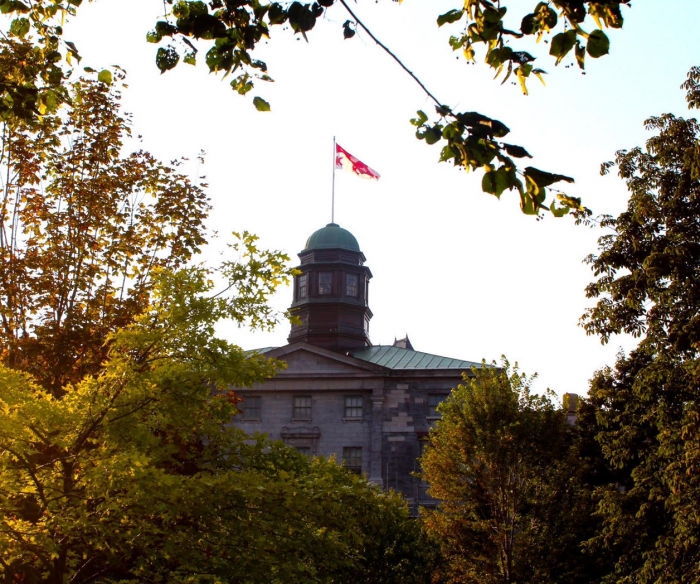Despite almost tripling tuition fees for French citizens studying in Quebec since Fall 2015, the provincial government has not seen a significant impact on the number of prospective students from France. McGill University’s enrolment report for Fall 2015 shows that, compared to Fall 2014, 127 more French citizens enrolled in either a full-time or part-time program at McGill.
The tuition increase, which was implemented in Sept. 2015, substantially reformed the cost of a full-year program. It was raised from $2,300 to $7,000 for French students at McGill University. Enrolment rates of French citizens in Quebec, however, have seen little variation since the tuition increase. The Ministry of Higher Education states that 10,272 French citizens enrolled in a program at a Quebec university in Fall 2015 versus 10,104 in Fall 2014.
Deputy Provost (Student Life & Learning) Ollivier Dyens, noted that McGill has not seen a reduction in the number of French applicants.
“We have had very few criticisms or worries as far as I am aware,” Dyens wrote in an email to the Tribune. “I actually heard none. McGill students usually choose between our university and the US Ivy League schools. We compare very favourably as far as tuition is concerned for French students.”
The hikes are a result of the reversal of fee reciprocity–a 1978 agreement between the French Republic and the Government of Quebec which ensured that French international students in Quebec were charged the same fees as Quebec students studying in France. As of Sept. 2015, French students are no longer reserved the right to pay the Quebec student fees, but instead pay fees equivalent to those of out-of-province Canadian students. Graduate and postgraduate programs were spared from the price increases, as were undergraduate students who were already enrolled at a Quebec university prior to Sept. 2015.
The adjustment of tuition fees for French students was offered as a solution to the 1978 agreement, which was no longer financially sustainable for the province of Quebec.
Vice-Principal (Communications and External Relations) Olivier Marcil explained that the number of French students studying in Quebec is greater than the number of Canadian students studying in France.
“Over time we saw growing enthusiasm to come study in Montreal, and we were facing a situation where for one Quebec student going to France, 10 French students were coming to Quebec,” Marcil said.
Quebec universities remain an affordable solution compared to Ivy League tuition fees or even those applied at certain highly selective French higher education establishments known as the “Grandes Écoles.” A four-year Bachelor’s program at École des Hautes Études Commerciales du Nord (EDHEC) based in Lille, France, for instance, costs over $17,000 per year. Incoming French students feel that the higher tuition fees are worth paying for a quality education.
Zoé Charpentier, a U1 Arts student from France, described the effect of the tuition hikes as the lesser of two evils.
“The hikes didn’t affect my personal decision to go to McGill, because it’s still cheaper than the rest of North America,” Charpentier said. “[However,] the hikes forced me to take out a loan to pay for college and make me worry about money.”
Many other French students were also driven to seek out financial assistance, as pointed out by Cara Piperni, director of the Scholarships & Student Aid office at McGill.
“When combining the aid dollars that went to French citizens from our entrance and in-course [scholarship] program in 2015-2016, McGill invested 70 per cent more aid dollars as compared to the prior year,” Piperni said.
In the future, however, French citizens’ fees should remain stable.
“Every year there is a small adjustment of fees for out-of-province Canadian students, which the tuition for French students follows, but you won’t see another increase where fees are tripled from what they initially were,” Marcil said.







